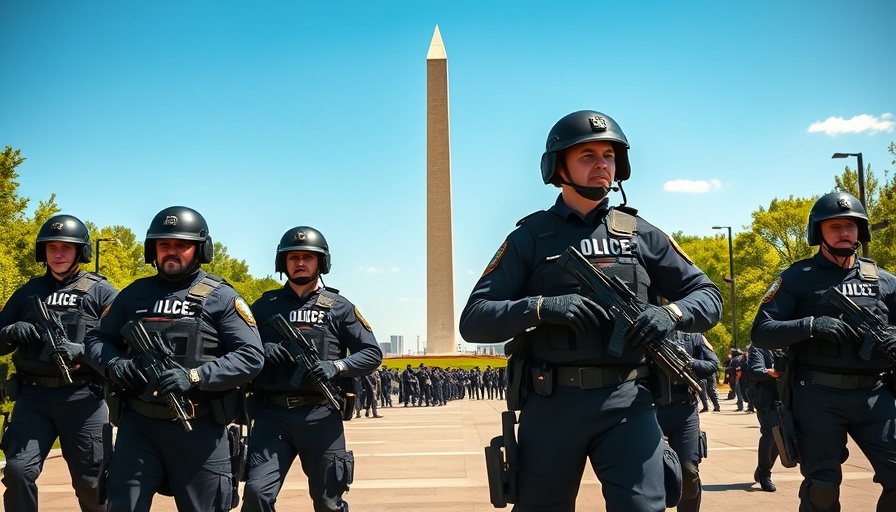
The Showdown in Baltimore: Federal Troops and Local Authority
Amid escalating tensions between President Donald Trump and Maryland’s Governor Wes Moore, Baltimore finds itself at the heart of a controversial debate over federal military deployments. Trump's recent threats to dispatch military forces to more Democratic-led cities, including Baltimore, is a significant move that highlights the growing rift between federal and local authorities on law enforcement and public safety.
Background: A Timeline of Events
In response to Governor Moore’s invitation for Trump to discuss safety concerns in Baltimore, the president utilized social media to threaten military intervention, citing prior deployments as his precedent. His comments come as armed members of the South Carolina National Guard began carrying weapons near Union Station in Washington, signaling a new, aggressive posture aimed at a perceived increase in crime and homelessness.
The Stakes Are Higher: What This Means for Baltimore
Deploying troops to Baltimore would not only impact local governance but could also set a concerning precedent for federal authority over state decisions. As communities struggle with crime, the idea of federal troops patrolling urban neighborhoods raises significant questions about civil rights and the role of police. Governor Moore’s criticism of Trump’s tactics underscores this tension, as he urges a collaborative approach to public safety rather than a militarized one.
Protests and Community Responses: An Echo of Local Sentiment
Residents of Baltimore and other cities reminiscent of this deployment plan have voiced their strong opposition. Protests in the capital have already emerged against the presidency’s heavy-handed tactics, with voices calling for community-led policing rather than military oversight. A local activist highlighted, "We aren't looking for soldiers; we need support and understanding to fix the issues that harm our neighborhoods."
Predicting the Future: Will More Cities Face Federal Troops?
As Trump hints at broadening military presences in places like New York and Chicago, the question remains: what will be the long-term impact of having armed forces in American cities? If militarized policing continues, could we witness increased tensions and conflicts, or will it serve as an effective deterrent against crime? A re-imagining of how we view law enforcement amid these tensions is essential for future public safety strategies.
Diverse Perspectives: Arguments For and Against Troop Deployments
Supporters of Trump's approach argue that federal involvement is necessary in the face of rising crime rates in urban areas. They believe that a show of military strength could deter criminal acts. Conversely, critiques focus on the social implications of militarization, suggesting that it can lead to a breakdown of trust between communities and law enforcement. Local voices remind us that effectively addressing crime requires understanding and addressing root causes, not just increasing visible force.
Conclusion: What Should We Take Away?
The situation in Baltimore serves as an illuminating case study of the clash between state rights and federal intervention. As citizens become increasingly aware of military presence in their streets, it prompts important discussions about policing, safety, and community relationships. Residents and leaders alike are encouraged to engage in dialogue about these pressing issues and to consider the type of future they envision for their city.
Understanding these dynamics is critical, and it’s up to informed citizens to shape these conversations within their communities. Follow the developments and engage in discussions that matter to your neighborhood.
 Add Row
Add Row  Add
Add 




Write A Comment